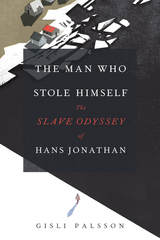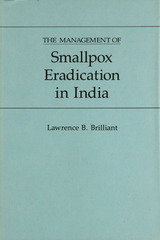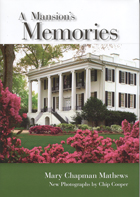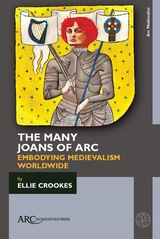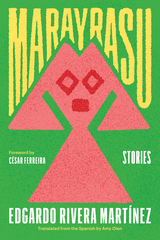6 books about 1898-1952
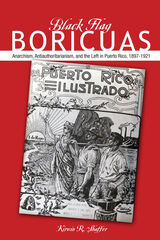
Black Flag Boricuas
Anarchism, Antiauthoritarianism, and th eLeft in Puerto Rico, 1897-1921
Kirwin R. Shaffer
University of Illinois Press, 2013
This pathbreaking study examines the radical Left in Puerto Rico from the final years of Spanish colonial rule into the 1920s. Positioning Puerto Rico within the context of a regional anarchist network that stretched from Puerto Rico and Cuba to Tampa, Florida, and New York City, Kirwin R. Shaffer illustrates how anarchists linked their struggle to the broader international anarchist struggles against religion, governments, and industrial capitalism. Their groups, speeches, and press accounts--as well as the newspapers that they published--were central in helping to develop an anarchist vision for Puerto Ricans at a time when the island was a political no-man's-land, neither an official U.S. colony or state nor an independent country.
Exploring the rise of artisan and worker-based centers to develop class consciousness, Shaffer follows the island's anarchists as they cautiously joined the AFL-linked Federación Libre de Trabajadores, the largest labor organization in Puerto Rico. Critiquing the union from within, anarchists worked with reformers while continuing to pursue a more radical agenda achieved by direct action rather than parliamentary politics. Shaffer also traces anarchists' alliances with freethinkers seeking to reform education, progressive factions engaged in attacking the Church and organized religion, and the emerging Socialist movement on the island in the 1910s.
The most successful anarchist organization to emerge in Puerto Rico, the Bayamón bloc founded El Comunista, the longest-running, most financially successful anarchist newspaper in the island's history. Stridently attacking U.S. militarism and interventionism in the Caribbean Basin, the newspaper found growing distribution throughout and financial backing from Spanish-speaking anarchist groups in the United States. Shaffer demonstrates how the U.S. government targeted the Bayamón anarchists during the Red Scare and forced the closure of their newspaper in 1921, effectively unraveling the anarchist movement on the island.
[more]
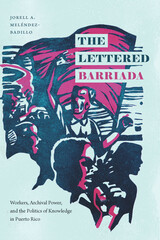
The Lettered Barriada
Workers, Archival Power, and the Politics of Knowledge in Puerto Rico
Jorell A. Meléndez-Badillo
Duke University Press, 2021
In The Lettered Barriada, Jorell A. Meléndez-Badillo tells the story of how a cluster of self-educated workers burst into Puerto Rico's world of letters and navigated the colonial polity that emerged out of the 1898 US occupation. They did so by asserting themselves as citizens, producers of their own historical narratives, and learned minds. Disregarded by most of Puerto Rico's intellectual elite, these workers engaged in dialogue with international peers and imagined themselves as part of a global community. They also entered the world of politics through the creation of the Socialist Party, which became an electoral force in the first half of the twentieth century. Meléndez-Badillo shows how these workers produced, negotiated, and deployed powerful discourses that eventually shaped Puerto Rico's national mythology. By following these ragtag intellectuals as they became politicians and statesmen, Meléndez-Badillo also demonstrates how they engaged in racial and gender silencing, epistemic violence, and historical erasures in the fringes of society. Ultimately, The Lettered Barriada is about the politics of knowledge production and the tensions between working-class intellectuals and the state.
Duke University Press Scholars of Color First Book Award recipient
Duke University Press Scholars of Color First Book Award recipient
[more]
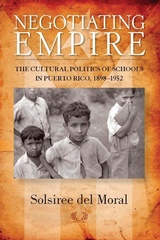
Negotiating Empire
The Cultural Politics of Schools in Puerto Rico, 1898–1952
Solsiree del Moral
University of Wisconsin Press, 2013
After the United States invaded Puerto Rico in 1898, the new unincorporated territory sought to define its future. Seeking to shape the next generation and generate popular support for colonial rule, U.S. officials looked to education as a key venue for promoting the benefits of Americanization. At the same time, public schools became a site where Puerto Rican teachers, parents, and students could formulate and advance their own projects for building citizenship. In Negotiating Empire, Solsiree del Moral demonstrates how these colonial intermediaries aimed for regeneration and progress through education.
Rather than seeing U.S. empire in Puerto Rico during this period as a contest between two sharply polarized groups, del Moral views their interaction as a process of negotiation. Although educators and families rejected some tenets of Americanization, such as English-language instruction, they also redefined and appropriated others to their benefit to increase literacy and skills required for better occupations and social mobility. Pushing their citizenship-building vision through the schools, Puerto Ricans negotiated a different school project—one that was reformist yet radical, modern yet traditional, colonial yet nationalist.
Rather than seeing U.S. empire in Puerto Rico during this period as a contest between two sharply polarized groups, del Moral views their interaction as a process of negotiation. Although educators and families rejected some tenets of Americanization, such as English-language instruction, they also redefined and appropriated others to their benefit to increase literacy and skills required for better occupations and social mobility. Pushing their citizenship-building vision through the schools, Puerto Ricans negotiated a different school project—one that was reformist yet radical, modern yet traditional, colonial yet nationalist.
[more]
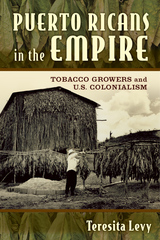
Puerto Ricans in the Empire
Tobacco Growers and U.S. Colonialism
Teresita A. Levy
Rutgers University Press, 2015
Most studies of Puerto Rico’s relations with the United States have focused on the sugar industry, recounting a tale of victimization and imperial abuse driven by the interests of U.S. sugar companies. But in Puerto Ricans in the Empire, Teresita A. Levy looks at a different agricultural sector, tobacco growing, and tells a story in which Puerto Ricans challenged U.S. officials and fought successfully for legislation that benefited the island.
Levy describes how small-scale, politically involved, independent landowners grew most of the tobacco in Puerto Rico. She shows how, to gain access to political power, tobacco farmers joined local agricultural leagues and the leading farmers’ association, the Asociación de Agricultores Puertorriqueños (AAP). Through their affiliation with the AAP, they successfully lobbied U.S. administrators in San Juan and Washington, participated in government-sponsored agricultural programs, solicited agricultural credit from governmental sources, and sought scientific education in a variety of public programs, all to boost their share of the tobacco-leaf market in the United States. By their own efforts, Levy argues, Puerto Ricans demanded and won inclusion in the empire, in terms that were defined not only by the colonial power, but also by the colonized.
The relationship between Puerto Rico and the United States was undoubtedly colonial in nature, but, as Puerto Ricans in the Empire shows, it was not unilateral. It was a dynamic, elastic, and ever-changing interaction, where Puerto Ricans actively participated in the economic and political processes of a negotiated empire.
[more]
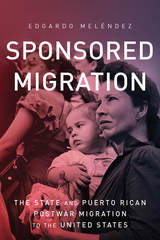
Sponsored Migration
The State and Puerto Rican Postwar Migration to the United States
Edgardo Meléndez
The Ohio State University Press, 2017
Puerto Rico is often left out of conversations on migration and transnationalism within the Latino context. Sponsored Migration: The State and Puerto Rican Postwar Migration to the United States by Edgardo Meléndez seeks to rectify this oversight, serving as a comprehensive study of the factors affecting Puerto Rican migration to the United States from the late 1940s to the 1960s. Examining the consequences of the perceived problem of Puerto Rican overpopulation as well as the cost of U.S. imperialism on the lives of Puerto Rican workers, Meléndez scrutinizes Puerto Rican migration in the postwar period as a microcosm of the political history of migration throughout Latin America.
Sponsored Migration places Puerto Rico’s migration policy in its historical context, examining the central role the Puerto Rican government played in encouraging and organizing migration during the postwar period. Meléndez sheds an important new light on the many ways in which the government intervened in the movement of its people: attempting to provide labor to U.S. agriculture, incorporating migrants into places like New York City, seeking to expand the island’s air transportation infrastructure, and even promoting migration in the public school system. One of the first scholars to explore this topic in depth, Meléndez illuminates how migration influenced U.S. and Puerto Rican relations from 1898 onward.
Sponsored Migration places Puerto Rico’s migration policy in its historical context, examining the central role the Puerto Rican government played in encouraging and organizing migration during the postwar period. Meléndez sheds an important new light on the many ways in which the government intervened in the movement of its people: attempting to provide labor to U.S. agriculture, incorporating migrants into places like New York City, seeking to expand the island’s air transportation infrastructure, and even promoting migration in the public school system. One of the first scholars to explore this topic in depth, Meléndez illuminates how migration influenced U.S. and Puerto Rican relations from 1898 onward.
[more]
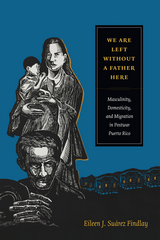
We Are Left without a Father Here
Masculinity, Domesticity, and Migration in Postwar Puerto Rico
Eileen J. Suárez Findlay
Duke University Press, 2015
We Are Left without a Father Here is a transnational history of working people's struggles and a gendered analysis of populism and colonialism in mid-twentieth-century Puerto Rico. At its core are the thousands of agricultural workers who, at the behest of the Puerto Rican government, migrated to Michigan in 1950 to work in the state's sugar beet fields. The men expected to earn enough income to finally become successful breadwinners and fathers. To their dismay, the men encountered abysmal working conditions and pay. The migrant workers in Michigan and their wives in Puerto Rico soon exploded in protest. Chronicling the protests, the surprising alliances that they created, and the Puerto Rican government's response, Eileen J. Suárez Findlay explains that notions of fatherhood and domesticity were central to Puerto Rican populist politics. Patriarchal ideals shaped citizens' understandings of themselves, their relationship to Puerto Rican leaders and the state, as well as the meanings they ascribed to U.S. colonialism. Findlay argues that the motivations and strategies for transnational labor migrations, colonial policies, and worker solidarities are all deeply gendered.
[more]
READERS
Browse our collection.
PUBLISHERS
See BiblioVault's publisher services.
STUDENT SERVICES
Files for college accessibility offices.
UChicago Accessibility Resources
home | accessibility | search | about | contact us
BiblioVault ® 2001 - 2025
The University of Chicago Press


